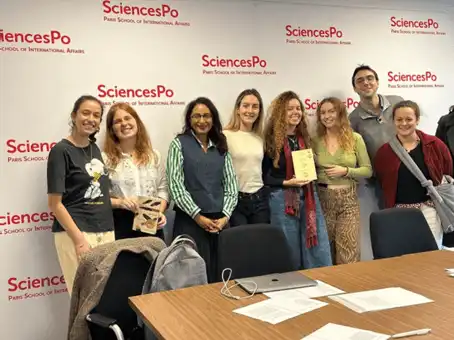28 October 2024
In the framework of CARE, PSIA was delighted to host Dr Madhur Anand, Professor in Environmental Sciences from the University of Guelph and accomplished poet and writer.
Dr Anand’s visit marked a significant opportunity for the PSIA community to explore innovative approaches to climate resilience and sustainability. During her visit, Dr Anand delivered a talk on ‘New Pathways and Hope for Climate Change Resilience and Biodiversity Sustainability’. She addressed the triple crisis of climate change, pollution and biodiversity loss, emphasizing the potential for human actions to not only harm but also positively impact the environment. Dr Anand advocated for a broader interpretation of “ecosystem services”, which takes into account local and global scales and features solutions that extend beyond purely economic measures to include social, behavioral, and cultural dimensions. The talk was introduced by Dr Milind Kandlikar, Professor at the School of Public Policy and Global Affairs (SPPGA) and the Institute for Resources, Environment and Sustainability (IRES) at the University of British Columbia.

Dr Anand also conducted a creative writing workshop with students aimed at bridging the gap between science and society. The workshop, titled ‘Exploring Climate Change Through Found Poetry’, encouraged participants to engage with the climate crisis from an artistic perspective. Dr Anand introduced the concept of the “crisis of the imagination,” explaining that while scientific evidence and solutions exist, there is often a failure to respond appropriately to the urgency of the situation. Through the process of creating poems in conversation with scientific articles, participants were invited to use artistic expression to explore new narratives and deepen their understanding of the complex realities of climate change.
Dr Anand’s visit highlighted the value of interdisciplinary approaches in tackling environmental issues and demonstrated that combining scientific and policy expertise with creative expression can help us think critically and productively about climate action.